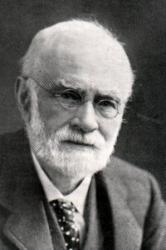Planning worship?
Check out our sister site, ZeteoSearch.org,
for 20+ additional resources related to your search.
- |
User Links
Person Results
Eugene Thomas
b. 1941 Arranger (last stanza) of "ST. THOMAS" in The Hymnal for Worship and Celebration
Eugene Thomas
William Crotch

1775 - 1847 Person Name: William Crotch, 1775-1847 Adapter of "ST MICHAEL" in The Hymn Book of the Anglican Church of Canada and the United Church of Canada William Crotch (5 July 1775 – 29 December 1847) was an English composer, organist and artist.
Born in Norwich, Norfolk to a master carpenter he showed early musical talent as a child prodigy. The three and a half year old Master William Crotch was taken to London by his ambitious mother, where he not only played on the organ of the Chapel Royal in St James's Palace, but for King George III. The London Magazine of April 1779 records:
He appears to be fondest of solemn tunes and church musick, particularly the 104th Psalm. As soon as he has finished a regular tune, or part of a tune, or played some little fancy notes of his own, he stops, and has some of the pranks of a wanton boy; some of the company then generally give him a cake, an apple, or an orange, to induce him to play again...
Crotch was later to observe that this experience led him to become a rather spoiled child, excessively indulged so that he would perform.
He was for a time organist at Christ Church, Oxford, from which he was later to graduate with a Bachelor of Music degree.
His composition The Captivity of Judah was played at Trinity Hall, Cambridge, on 4 June 1789; his most successful composition in adulthood was the oratorio Palestine (1812). He may have composed the Westminster Chimes in 1793.
In 1797 Crotch was given a professorship at Oxford University, and in 1799 he acquired a doctorate in music. While at Oxford, he became acquainted with the musician and artist John Malchair, and took up sketching. He followed Malchair's style in recording the exact time and date of each of his pictures, and when he met John Constable in London in 1805, he passed the habit along to the more famous artist.
In 1834, to commemorate the installation of the Duke of Wellington as chancellor of the University of Oxford, Crotch penned a second oratorio titled The Captivity of Judah. The 1834 work bears little resemblance to the oratorio he wrote as a child in 1789.
In 1822, Crotch was appointed to the Royal Academy of Music as its first Principal, but resigned ten years later.[2] He spent his last years at his son's house in Taunton, Somerset, where he died suddenly in 1847. Among his notable pupils were William Sterndale Bennett, Lucy Anderson, Stephen Codman, George Job Elvey, Cipriani Potter, and Charles Kensington Salaman
--en.wikipedia.org/
William Crotch
Charles Lockhart
1745 - 1815 Person Name: Charles Lockhart, 1745 - 1815 Composer of "CARLISLE" in The Book of Praise Born: 1745, London, England.
Died: February 9, 1815, London, England.
Lockhart was first organist of the Lock Hospital, and was for some years associated with Martin Madan in the musical arrangements there. Though blind from infancy, Lockhart had a distinct musical gift, and was especially known for training children’s choirs. His earliest tunes were printed on separate sheets. He published a set of hymn tunes about 1810.
Sources:
Frost, p. 680
Lightwood, p. 155
Nutter, p. 460
Music:
CARLISLE
TAMWORTH
http://www.hymntime.com/tch/bio/l/o/c/lockhart_c.htm
================
http://en.wikipedia.org/wiki/Charles_Lockhart_%28musician%29
Charles Lockhart
Ottilie Stafford
1921 - 2006 Person Name: Odttilie Stafford (1921-2006) Adapter of "Rise Up, O Church of GOd" in Seventh-day Adventist Hymnal
Ottilie Stafford
David Jenkins

1848 - 1915 Person Name: David Jenkins. (1848-1915) Arranger of "LLANLLYFNI" in Welsh and English Hymns and Anthems Born: December 30, 1848, Trecastle, Breconshire, Wales.
Died: December 10, 1915, Aberystwyth, Cardiganshire, Wales.
Buried: Trecastle, Breconshire, Wales.
Professor David Jenkins (1848 - 1915) was a Welsh composer born at Trecastle, Brecknockshire, Wales. Originally apprenticed to the tailoring trade, he joined the Tonic Solfa choral movement and in 1874 enrolled at Aberystwyth College and studied under the renowned composer Joseph Parry, the first Professor of Music there. Jenkins received his Mus. Bac. from Cambridge in 1878. In 1893, he was appointed lecturer in the newly-formed Music Department of the University of Wales, Aberystwyth, and was appointed Professor in 1910, a post he held until his death. He was a prominent figure in the musical life of Wales, judging at the National Eisteddfod and provincial eisteddfodau, and conducting at cymanfaoedd (hymn-singing festivals). He was a prolific composer; his best-known choral works are Arch y Cyfamod, Job, Yr Ystorm and The Psalm of Life, which was written for the Cardiff Triennial Festival in 1895, and was first premiered by two thousand singers at the Crystal Palace, London, on July 1896. He was also an editor of Y Cerddor. He died in Castell Brychan, Aberystwyth.
--www.hymnswithoutwords.com
David Jenkins
James Leach
1762 - 1797 Person Name: J. Leach Composer of "[Rise up, O men of God]" in Hymns We Love
James Leach
John Jones
1796 - 1857 Person Name: J. Jones. (1796-1857) Composer of "LLANLLYFNI" in Welsh and English Hymns and Anthems See also in:
Wikipedia
Also known as John Jones, Talysarn
John Jones


 My Starred Hymns
My Starred Hymns


